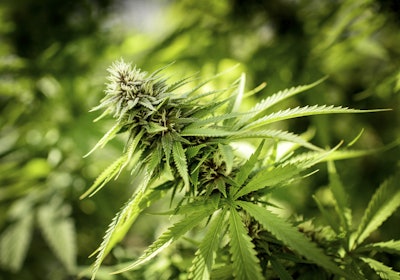
The federal government this month again declined to authorize the medical use of marijuana — a decision that prompted criticism from advocates that believe the drug can be used to treat a wide variety of conditions.
Chemical industry observers, however, said this week that the move likely benefited marijuana researchers in the short term.
The Drug Enforcement Agency rejected requests to reclassify marijuana from "Schedule I" — or a drug with "no currently accepted medical use" — to "Schedule II," a decision that would have enabled doctors to prescribe it.
Although doctors still can't prescribe marijuana, in many states they can recommend that patients treat various maladies with products from legal marijuana dispensaries in those states.
That burgeoning market created opportunities for scientists in the medical marijuana field, and experts at this week's American Chemical Society National Meeting & Exposition in Philadelphia suggested that reclassification could stop it in its tracks.
"They would have to rewrite the book ... it would be a setback,” Erika Oltermann, who chairs the ACS Cannabis Chemistry Subdivision, told Chemistry World.
Oltermann added that chemists are increasingly in demand for marijuana extraction, purification, flavoring and analysis.
And while the pharmaceutical industry has generally opposed medical marijuana, ACS attendees also said that the DEA decision ensured that current researchers won't have to compete with large pharmaceutical companies in the nation's growing cannabis market.
Despite the continued Schedule I classification, signs of easing federal restrictions on marijuana remain on the rise. One day before the DEA handed down its decision, the Obama administration indicated that it will open the door to marijuana research at many more U.S. universities.
Currently, only the University of Mississippi has that authority.
Marijuana advocates lauded that change, but they nonetheless argued that the DEA's policy "flies in the face of objective science and overwhelming public opinion."
"Continuing marijuana prohibition forces critically ill people to suffer needlessly, leaves life-changing treatments undeveloped and keeps patients and providers in limbo between state and federal laws," Aaron Smith of the National Cannabis Industry Association said in a statement.






















